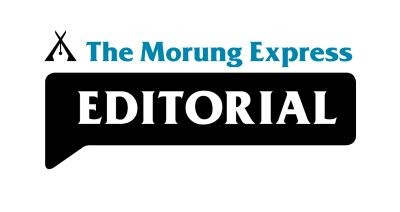
The word ‘education’ derived from the Latin word ‘educare,’ when literally translated means ‘to bring forth’ or ‘to lead forth.’ Its true meaning shows that the source of learning originates from that which is stimulated from within. It is through the process of percolation that increases understanding and allows knowledge and wisdom to have relevance in daily life, rather than being based on an inadequacy where information is forced into people’s minds. The pedagogy necessary ‘to bring forth’ is one of the decisive factors that both catalyzes and facilitates human development. Consequently, education involves more than books and skills, tests and examinations, as it is about nurturing and developing persons to grow with purpose in order to live a full and dignified life.
Alfred Taiaiake, an indigenous writer, in a compelling statement points out that, “One of the major consequence of colonialism was the loss of our ability to think of ourselves; thus, many of our leaders and communities rely on others to think for them. The cost of delegating intelligence is enormous in terms of the misinterpretation or misappropriation of indigenous knowledge and perspectives.”
One example of this was found in the Hong Kong school system’s focus on student discipline, called ‘school discipline.’ Students are conditioned to blindly obey authority and are not allowed to challenge an idea or anything that represents authority. Consequently, over the past more than 160 years, those in power, especially government authorities, regardless of their performance or governance capabilities, have not been seriously questioned. In this education model students are taught only to pass examinations with high grades in order to secure admission to good universities, and, if graduating with high honors, then another guarantee of having a well-paid job is achieved. Within this emphasis on school discipline, success is measured narrowly under strict conditions where students are negatively conditioned through regimented disciplinary practices. These conditions partially account for how the outdated political system has been maintained to the present today. These practices reflect a culture that is bankrupt of inculcating human values and principles through repressing independent, creative and critical thinking.
The present education pattern concentrates on filling students with information and concepts that are not relevant to daily life because they are falsely conditioned to believe that they are inadequate and lacking something. Paulo Friere, a Brazilian educator in his book, Pedagogy of the Oppressed, called this the “banking education” model. He said, “Education is suffering from narration sickness. The teacher talks about reality as if it were motionless, static, compartmentalized, and predictable; expounding on a topic completely alien to the existential experience of the students; and to fill the students with the narration-contents which are detached from reality, disconnected from the totality that engendered them and could give them significance. Words are emptied of their concreteness and are hollow, alienated, and alienating wordiness.”
The scope of the ‘banking’ concept of education extends only as far as receiving, filing, and storing the deposits into the students’ brains. The banking concept destroys the individual’s natural capacity to be self-determining, as it suppresses a student’s innate ability to learn and contribute creatively and positively to community life. Friere further reminds us that, “In the banking concept of education, knowledge is a gift bestowed by those who consider themselves knowledgeable upon those whom they consider to know nothing. Projecting an absolute ignorance onto others, a characteristic of the ideology of oppression, negates education and knowledge as processes of inquiry.” He emphasizes pedagogy where education begins by offering the solution to the teacher-student contradiction and dichotomy which, in essence, reconciles the polarity which frees teachers and students to learn from each other.
An education approach developed by the Palestine Ministry of Education adopted a student-centered pedagogy that acknowledges and utilizes the pluralism of intelligence and diversity of learning styles in the learning process. This Ministry embarked on a plan to redesign the teacher-centered system into one of learner-oriented education; from an academic education which is foreign to the learner’s needs, aspirations and interests; to an education for life and sustained development, from a confining learning environment to a humane one with features of care, responsible freedom, positive interaction, involvement and co-operation.
Nagas, too, can design its own unique model for learning that includes the richness of Naga history combined with our aspirations for attaining a harmonious shared humanity as an expression of self-determination.






